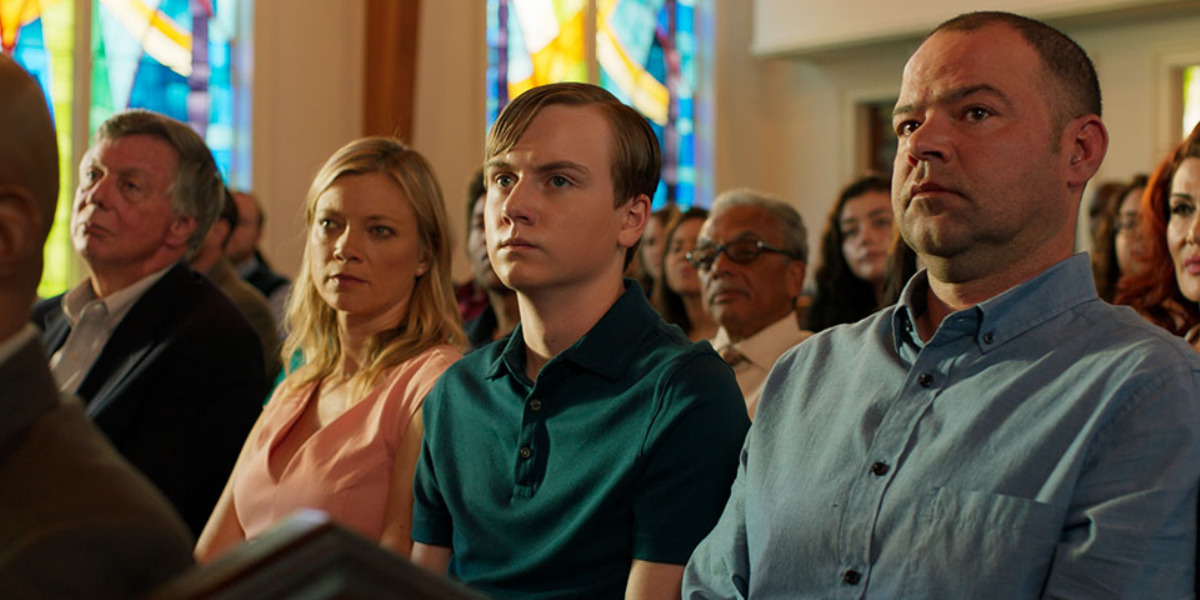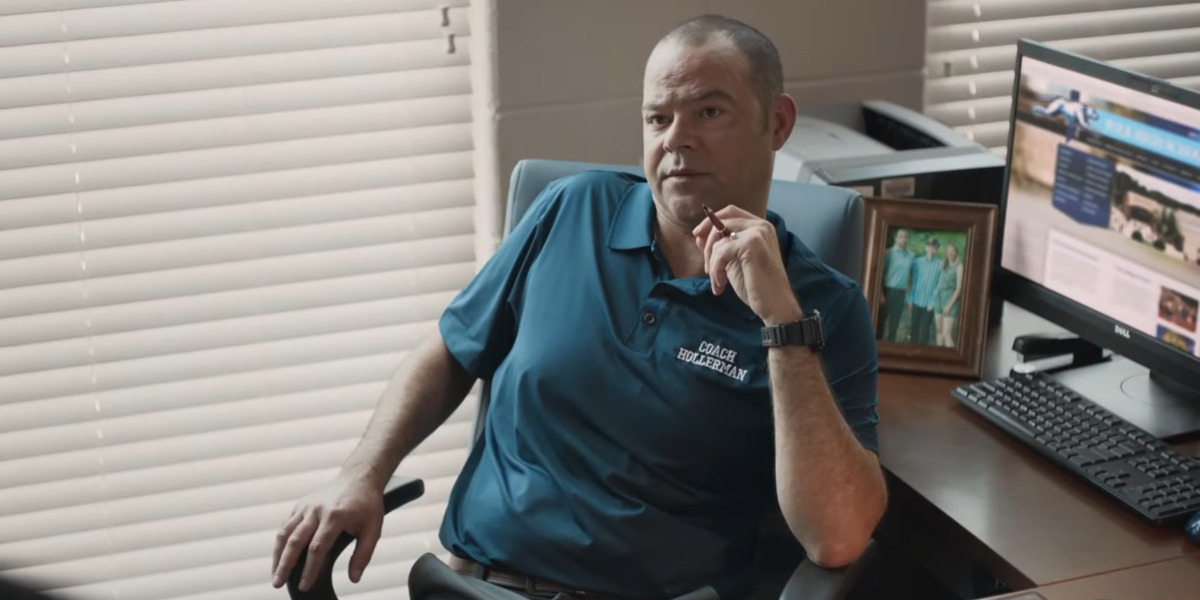‘Tyson’s Run’ is a drama film that presents an account of Tyson Hollerman’s life as the teenage kid diagnosed with high-functioning autism ventures out into the world after years of homeschooling and blazes his own path. Within the coming-of-age narrative, Tyson discovers his passion for running after crossing paths with a former star athlete, Aklilu. Consequently, he decides to undertake a mountainous challenge by preparing for the upcoming city-wide marathon.
Part of Tyson’s motivations stems from his need to please his father, a well-respected Football Coach in the community, who never learned how to deal with his son’s diagnosis. Therefore, the film also charts Coach Bobby Hollerman’s transformative journey as the father learns to recognize his mistakes and unconditionally support his child. For the same reason, many viewers may wonder if Bobby’s character within this inspirational sports story actually possesses a basis in reality.
Bobby Hollerman Is a Fictional Coach and Father
Bobby Hollerman from ‘Tyson’s Run’ is not based on an actual High School Football Coach. Instead, the character is a work of fiction created by Writer/Director Kim Bass to serve an instrumental role within Tyson’s story. The film itself pens a fictionalized tale that takes inspiration from a conversation filmmaker Bass once had with a real-life child interested in the sport of running. Therefore, since the film only holds loose inspiration, in reality, most of the characters, including Bobby Hollerman, are rendered fictitious additions to a largely fictional story.

Yet, given the film’s authentic portrayal of Tyson’s character— as an autistic teenage athlete— the characters within the story still manage to hold onto some semblance of reality. Bobby’s character, in particular, provides a compelling representation of a father who struggles to reconcile with the fact that his son is autistic. In the film, one of Bobby’s defining factors remains his attachment to the sports world as a former player-turned-coach.
After an on-field injury ruined his own high school football career, Bobby took to coaching the local team and earning a name for himself as a respected coach. In many ways, after Tyson’s birth and ensuing diagnosis, Bobby distanced himself from his role as a father by supplying the same protective and affectionate energy toward his football team. Although the same helped him in his profession, it severed his ties with Tyson, who grew up to be much closer to his mother than his father.
Moreover, Bobby’s relationship with his wife, Eloise, also took the brunt of his negligence. The same resulted in countless arguments, with Eloise wanting to provide her son with the best future she could while Bobby held on to the notion that Tyson needed protection from the outside world. The man still deeply cared for his son but never knew how to express the same. As such, much of Bobby’s plotline within the film revolves around him righting his past wrongs and recognizing his son for the exceptional individual he really is.
In that regard, Bobby’s fictional storyline remains reminiscent of an ideal reality that people who struggle with their autistic kid’s diagnosis can look up to. According to reports, parents with autistic children tend to experience more stress than their counterparts with neurotypical kids or kids with other developmental diagnoses. As such, Bobby’s nuanced depiction— from his initial ill equipment to deal with Tyson’s autism to his eventual acceptance and celebration of it— provides a great insight into the real-life experiences of several parents.
Actress Amy Smart, who embodies Eloise’s character, delivering a performance beside Rory Cochrane’s Bobby Hollerman, spoke about the same in an interview with The List and said, “I like that in this film, especially with Rory [Cochrane]’s character [Bobby Hollerman], he really comes around.” The actress elaborated further, “He’s been in his one-track football coach mode for a long time, seeing that his son is really trying to reach out to him, and literally, his son keeps running away because he is not getting what he wants, and then almost losing his life. These cathartic moments really are life-changing for people.”
Thus, despite Bobby Hollerman’s lack of basis in a real-life individual, his depiction remains informed by reality, presenting an authentic and inspirational account of people in similar situations. Nevertheless, since the man is confined to the film’s fictionalized narrative, he remains a fictional character.


You must be logged in to post a comment.